Related Research Articles
Conradh na Gaeilge is a social and cultural organisation which promotes the Irish language in Ireland and worldwide. The organisation was founded in 1893 with Douglas Hyde as its first president, when it emerged as the successor of several 19th century groups such as the Gaelic Union. The organisation was a spearhead of the Gaelic revival and of Gaeilgeoir activism.
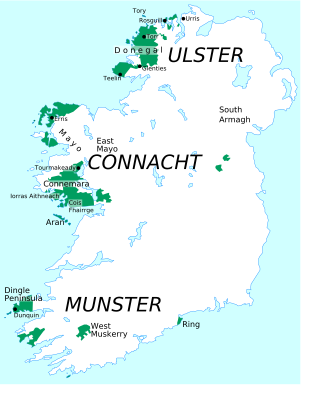
Gaeltacht are the districts of Ireland, individually or collectively, where the Irish government recognises that the Irish language is the predominant vernacular, or language of the home. The Gaeltacht districts were first officially recognised during the 1920s in the early years of the Irish Free State, following the Gaelic revival, as part of a government policy aimed at restoring the Irish language.
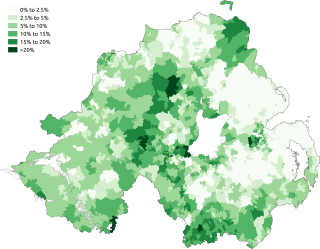
The Irish language is, since 2022, an official language in Northern Ireland. The main dialect spoken there is Ulster Irish. Protection for the Irish language in Northern Ireland stems largely from the European Charter for Regional or Minority Languages.

TG4 is an Irish free-to-air public service television network. The channel launched on 31 October 1996 and is available online and through its on demand service TG4 Player in Ireland and beyond.
RTÉ Raidió na Gaeltachta, abbreviated RnaG, is an Irish language radio station owned and operated by Raidió Teilifís Éireann (RTÉ). The station is available on FM in Ireland and via satellite and on the Internet. It celebrated 40 years on air on 2 April 2012. The station's main-headquarters are in Casla, County Galway with major studios also in Gaoth Dobhair, County Donegal and An Daingean, County Kerry.

Changi Prison Complex, often known simply as Changi Prison, is a prison complex in the namesake district of Changi in the eastern part of Singapore. It is the oldest and largest prison in the country, covering an area of about 50 ha. Opened in 1936, the prison has a rich history.

The Selarang Barracks incident, also known as the Barrack Square incident or the Selarang Square Squeeze, was a revolt of British and Australian prisoners-of-war (POWs) interned in a Japanese camp in Changi, Singapore.
C.U. Burn is a cult Irish language television comedy broadcast on the Irish-language television channel Teilifís na Gaeilge. It tells the tales of the County Donegal undertakers Charlie and Vincie Burn who run a turf-fueled crematorium. They are rivalled by another group of more professional undertakers led by Frank Doyle. The show revolves around the cunning Charlie Burn whose ruthless pursuit of business often leads to much chaos while his long-suffering brother Vincie Burn simply requests a quiet life. Pádraig assists at the crematorium and Pádraig's sister Máiréad is the recurring love interest of Charlie.

An Cumann Gaelach is the Irish Language Society at Queen's University Belfast. Established in 1906, it is the third oldest society still in existence at the University, after the BMSA and Christian Union. The first meeting of the society was held on 30 January 1906, with William Mac Arthur being elected the first president. The society is part funded by the University, through the QUB Students' Union.
Cárthach Bán Breathnach is an Irish actor and broadcaster. As an actor, he is known for his roles in the TG4 series Aifric and the Irish language soap opera Ros na Rún.
A Neo-Gaeltacht is an area where Irish has a strong presence as a spoken language but is not part of the officially defined or traditional Gaeltacht areas. It has been argued that non-Gaeltacht activist groups wishing to establish an Irish language community need to show that it is large, permanent and formally organised and that it has a growing number of people using Irish as their first language. Another objective is a situation in which children use Irish among themselves and with other Irish speakers in a natural way while being able to deal with a largely English-speaking world.
Donncha Ó hEallaithe is an Irish language activist and academic.
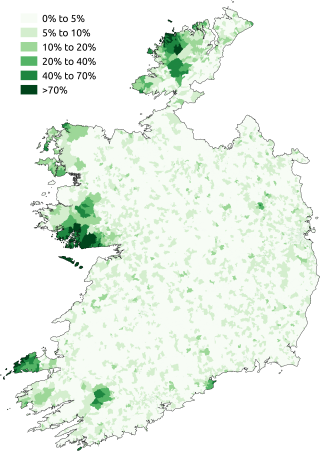
The official status of the Irish language has remained high in the Republic of Ireland from foundation. This reflects the dominance of the language in Irish cultural and social history until the nineteenth century and its role in Irish cultural identity. In 2022, strong recognition was added in Northern Ireland also. In the 2022 Republic of Ireland census 1,873,997 people or 39.8% of the population in the Republic of Ireland said that they had some ability to speak Irish, out of an overall population of 5,149,139. In Northern Ireland 228,600 people (12.4%) have some ability in the Irish language according to the 2021 census for Northern Ireland, out of a population of 1,903,175 people. It has been found, however, that while ideological support for Irish is high, actual routine use is very low, and that there is very little or rare correlation between personal fluency in the language and the perceived value of Irish as an identity-marker. Nevertheless, the language benefits from the support of activists who continue to use it as a social and cultural medium.
Patrick O'Kane is an Irish actor who was born in 1965 in Belfast, Northern Ireland. He has been part of the companies of the Royal National Theatre and the Royal Exchange Theatre, Manchester. He has appeared in London's West End and at the Abbey Theatre in Dublin. In addition to his extensive stage work, O'Kane has appeared in movies and on television in many parts.
Páidí Ó Lionáird is an Irish television presenter and columnist from Cúil Aodha, County Cork. Since 1997, Ó Lionáird has been the presenter of current affairs and entertainment shows on the Irish language channel TG4.
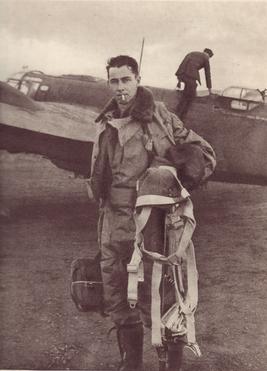
Thomas Ion Victor Ferguson known as Ion Ferguson Royal Army Medical Corps was an Irish volunteer for the British army who escaped from Oflag IV-C, Colditz Castle, during the Second World War.
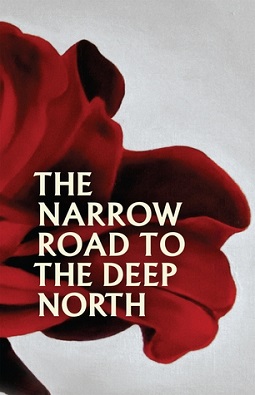
The Narrow Road to the Deep North is the sixth novel by Richard Flanagan, and was the winner of the 2014 Booker Prize.

Tarlach Ó hUid was an English-born Irish language activist, journalist and writer who became a member of the Irish Republican Army during World War II.
References
- ↑ "Frank Murray: Timeline". Frank Murray: Belfast Doctor. Retrieved 21 March 2023.
- ↑ "Frank's POW Diaries". Frank Murray: Belfast Doctor. Retrieved 21 March 2023.
- ↑ Jess, Mervyn (14 August 2020). "VJ Day: How a Belfast doctor used Irish to keep WW2 secrets". BBCNews, N. Ireland. Retrieved 21 March 2023.
- ↑ Mulcahy, Colm (27 November 2020). "The Belfast doctor who used Gaeilge to outwit his WWII Japanese captors". RTE News. Retrieved 24 March 2023.
- ↑ Murray, Carl (2020). The Belfast Doctor: The POW diaries of Dr. Frank Murray (PDF). Belfast. p. 187. Retrieved 26 March 2023.
{{cite book}}: CS1 maint: location missing publisher (link) - ↑ "The Journey Home". Frank Murray: Belfast Doctor. Retrieved 24 March 2023.
- ↑ O'Brien, Shane (12 March 2023). "The Belfast doctor who kept Irish language diaries at a Japanese PoW camp". Irish Central. Retrieved 21 March 2023.
- ↑ McNally, Frank (3 September 2020). "How a Belfast prisoner of war used Irish language to defy Japanese captors". The Irish Times. Retrieved 24 March 2023.
- ↑ "Litir Ghrá ón Dara Cogadh Domhanda". BBC. Retrieved 21 March 2023.
- ↑ McConville, Marie Louise (30 September 2022). "TG4 documentary to tell war story of Belfast doctor who escaped death at hands of Japanese army". Irish News. Retrieved 24 March 2023.
- ↑ Murray, Carl. "Frank Murray: Belfast Doctor". Frank Murray: Belfast Doctor. Retrieved 24 March 2023.
- ↑ Murray, Paul (2021). From the Gaeltacht to Galicia: a Son's Tale. Liskeard, Cornwall: Honeybee Books. p. 250. ISBN 978-1913675165.